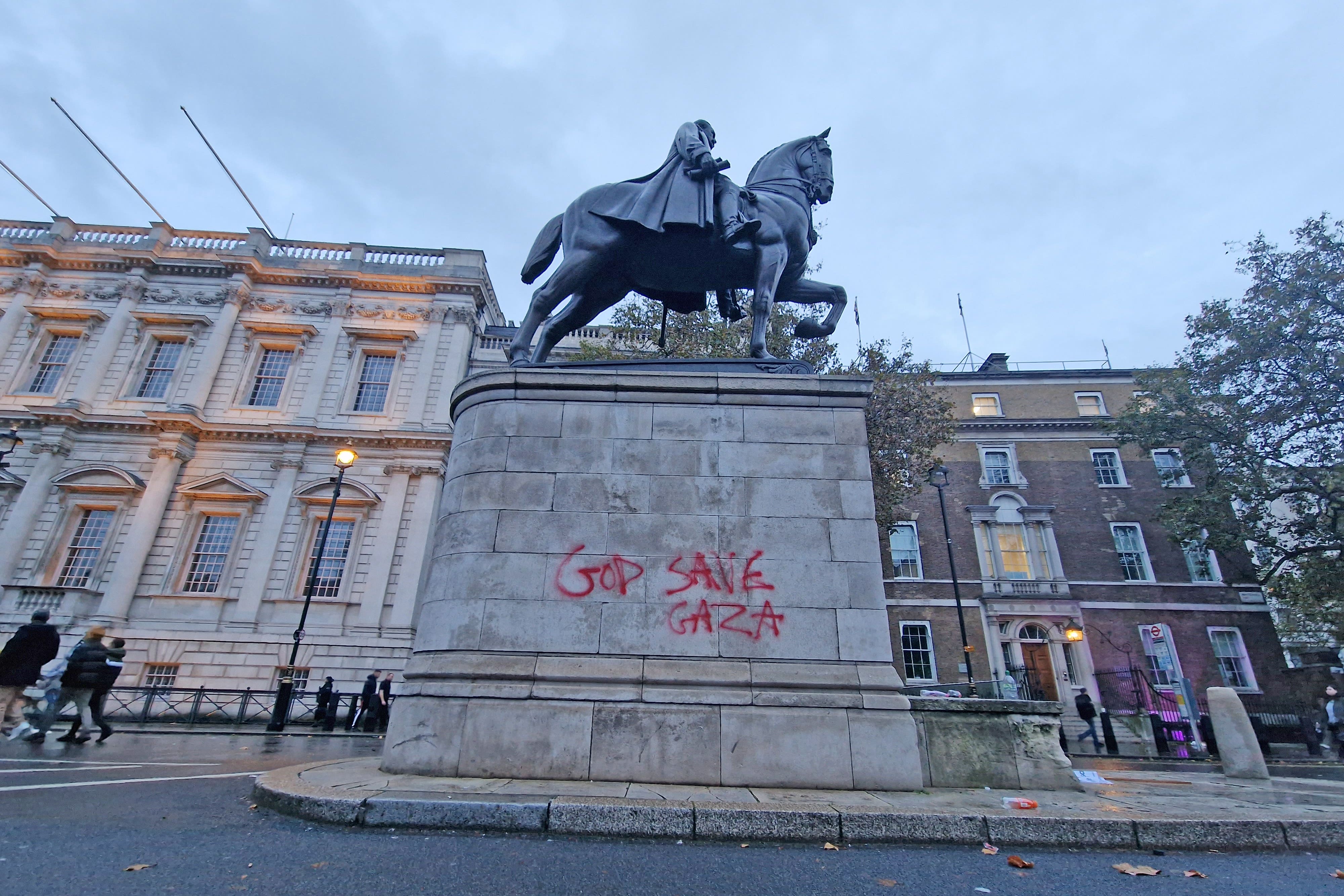Graffiti daubed on Field Marshal Haig statue in London pro-Palestinian protest
Around 100,000 demonstrators took to the streets demanding a ceasefire in the Israel-Hamas war from noon on Saturday.

Your support helps us to tell the story
From reproductive rights to climate change to Big Tech, The Independent is on the ground when the story is developing. Whether it's investigating the financials of Elon Musk's pro-Trump PAC or producing our latest documentary, 'The A Word', which shines a light on the American women fighting for reproductive rights, we know how important it is to parse out the facts from the messaging.
At such a critical moment in US history, we need reporters on the ground. Your donation allows us to keep sending journalists to speak to both sides of the story.
The Independent is trusted by Americans across the entire political spectrum. And unlike many other quality news outlets, we choose not to lock Americans out of our reporting and analysis with paywalls. We believe quality journalism should be available to everyone, paid for by those who can afford it.
Your support makes all the difference.The statue of First World War commander Field Marshal Douglas Haig has been defaced with the words “God Save Gaza” in a pro-Palestinian protest in central London.
Around 100,000 demonstrators took to the streets demanding a ceasefire in the Israel-Hamas war from noon on Saturday.
Graffiti was daubed on the Field Marshal Earl Haig Memorial, on Whitehall, using red paint.
According to Historic England, it is a Grade II-listed statue.
Haig, who died in 1928, was commander of the British forces at the Somme and Ypres during the First World War, and his role has made him one of the most controversial military figures of the last century.
He eventually won a battle of attrition against Germany on the Western Front.
But he became a much-maligned historical figure for his controversial strategies which led to excessive casualties of British troops under his command.
He founded the Royal British Legion Scotland and the Earl Haig Fund – now known as Poppyscotland – in 1921.